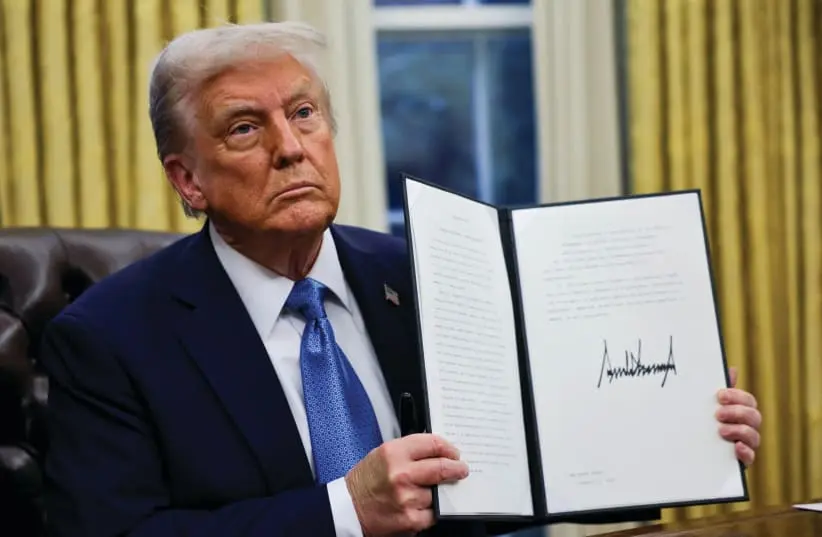President Donald Trump has ignited global trade hostilities with his proposal to impose a 25% tariff on new automobiles.
Additionally, automobile component parts imported into the United States starting April 3.
As a matter of fact, the tariffs were designed to spur manufacturing in this country. However, the international response has been outrage.
Tariffs and the Economy

Surprisingly, tariffs are leading to an estimated $100 billion of revenue each year. Arguably, President Donald Trump says these tariffs on automobile parts will spur factories in the United States and curtail the nation’s dependence on international manufacturers.
Conclusively, critics of the proposal argue that the higher vehicle cost. What is already at an average new vehicle cost of $49,000, will only hurt middle and working-class families.
Henceforth, manufacturers with a global supply chain may raise vehicle prices and reduce overall sales.
International Responses
The European Union as well as Canada, Japan, and South Korea expressed great concern over the administrative taxes.
Prime Minister of Canada Mark Carney characterized the taxes as a ‘direct attack’. While the President of the European Commission called it a tax that will hurt businesses and consumers.
Therefore, these countries may respond with their own tariffs which raises further concern about a trade war.
Canada’s Reaction
In light of the U.S. tariffs, Canada has introduced its own new 25% counter-tariffs on approximately C$30 billion ($20.8 billion). That is worth of U.S.-made products.
Finance Minister Dominic LeBlanc declared that these tariffs will impact U.S. steel and aluminum. Additionally, consumer products like computers and recreational equipment.
LeBlanc added that Canada “will not stand idly by while our iconic steel. As a matter of fact, aluminum industries are being unfairly targeted.”
Domestic Response
The United Auto Workers union supported the tariffs as they may help bring some American auto jobs home.
Conversely, trade experts warn that the tariffs could increase the prices of cars, decrease the sales.
Conclusively, this will eliminate jobs in the U.S. auto industry, which relies heavily on imports.
Small business owners have been extremely tentative, delaying investments and hiring due to uncertainty in the economic environment.
Potential Impact
The tariffs have already caused losses in auto stocks in Asia, particularly Japan and South Korea.
Economic experts and industry groups are also warning of higher consumer prices and job losses, across the border, due to the tariffs.
The Federal Reserve also expects slow economic growth and higher inflation, partly due to the tariff situation.
As things develop, the global economy pays close attention to the risk of disruption of trade relations. Additionally, it also risks economic stability.


